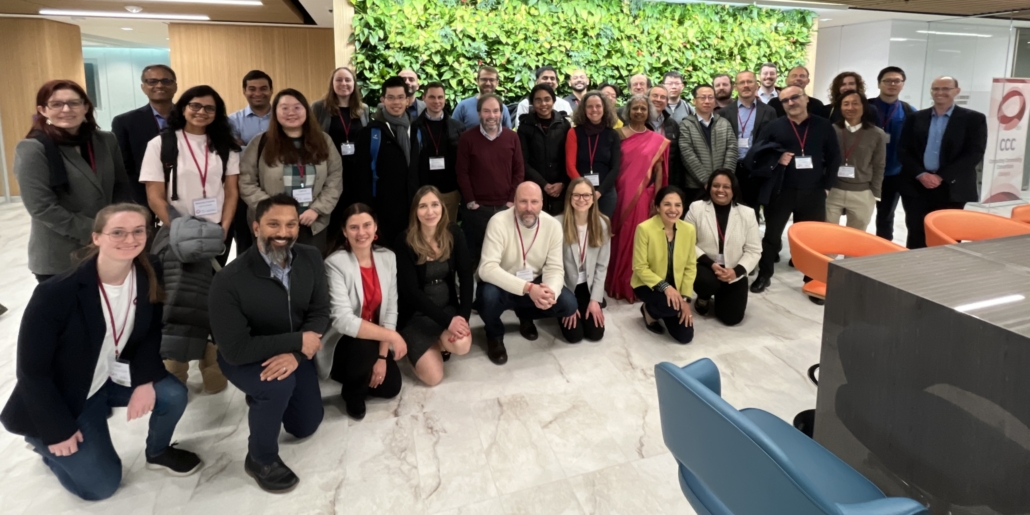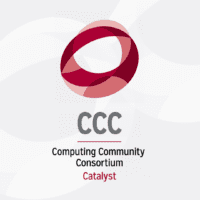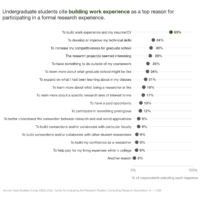CCC Sponsored AI/OR III workshop: Engaging the Synergies of the AI and OR Communities
By Petruce Jean-Charles, Communications Associate, CCC
 An interdisciplinary group of 50 researchers attended the third Artificial Intelligence/Operations Research (AI/OR) workshop in late March in Washington, DC. Presentations ranging from the opioid epidemic to integrating OR and AI through the optimization lens, discussing challenges that require collaboration between the two communities in Operations Research (OR) and Artificial Intelligence (AI).
An interdisciplinary group of 50 researchers attended the third Artificial Intelligence/Operations Research (AI/OR) workshop in late March in Washington, DC. Presentations ranging from the opioid epidemic to integrating OR and AI through the optimization lens, discussing challenges that require collaboration between the two communities in Operations Research (OR) and Artificial Intelligence (AI).
In 2021, the first AI/OR workshop was convened to establish the joint strategic vision. Researchers from the OR and AI communities presented on theories and applications and discussed ways to foster collaboration between the two communities and make it more widely accepted and promoted.
“We needed to make sure that we get greater recognition for the researchers and practitioners in both OR and AI, and we felt it was important to bring the two communities together,” said Dr. Radhika Kulkarni, an Advanced Analytics professional. “Because each community has a lot to offer that’s valuable to the other. What can we do together that is even more than what each community can do on its own?”
Dr. Kulkarni added that the third workshop put out a broad call for proposals for some grand challenges, seeking specific problems where they can demonstrate the added value of AI and OR researchers working jointly.
Dr. Kulkarni further explained that, “In the current workshop, we are looking at consequential problems in society which require the collaboration of both communities to come at problems with a slightly different perspective. OR researchers are trained to look at a systemic way to address problems, from data, to modeling, to implementation and how to solve a business problem. Computer scientists start with data and research innovative algorithms to gain value from data. OR tends to use a model-driven type of philosophy and computer science has always adopted adata-driven model. More recently, an increasing number of OR researchers are also looking at data- and model-driven approaches. One of the goals for this workshop was to discuss how can we make sure that each community has a place in the other community for publishing and conferences because the greater we interact, the better we can collaborate,” Dr. Kulkarni said.
Dr. Kulkarni is pleased with the amount of discussion during the event for collaboration among the communities. The presentations were met with questions and comments for researchers from across the US and other parts of the world, including Germany, Israel and Singapore, such as Pradeep Varakanthan, Professor of Computer Science at the School of Computing and Information Systems at Singapore Management University.
Varakantham found many of the problems interesting and they opened his mind to challenges he had never considered. “One of the fascinating things that people were talking about were these challenge problems which I hadn’t known; some of the domains I knew but the way the problem was presented was quite interesting. I think that is something that I will take away from this event. Purely based on what the workshop is about, I think I definitely learned a lot of interesting challenge problems that I will think about because some of them are relevant to what I am trying to accomplish.”
The discussions were an impactful part for Varakantham in this workshop. “There’s lots of really cool ideas floating around. There were lots of discussions which I miss these days in computer science conferences. They’ve grown so huge that people barely talk about concrete research directions and concrete research problems. Here there are lots of discussions, lots of good questions coming through, and lots of big challenge problems that have been presented.”
The workshop organizers, along with some of the attendees, have begun drafting a report which will encapsulate not only the discussions held at the third workshop, but also the findings and recommendations which have come out of all three workshops. Keep an eye out for this workshop series report in the coming months.









